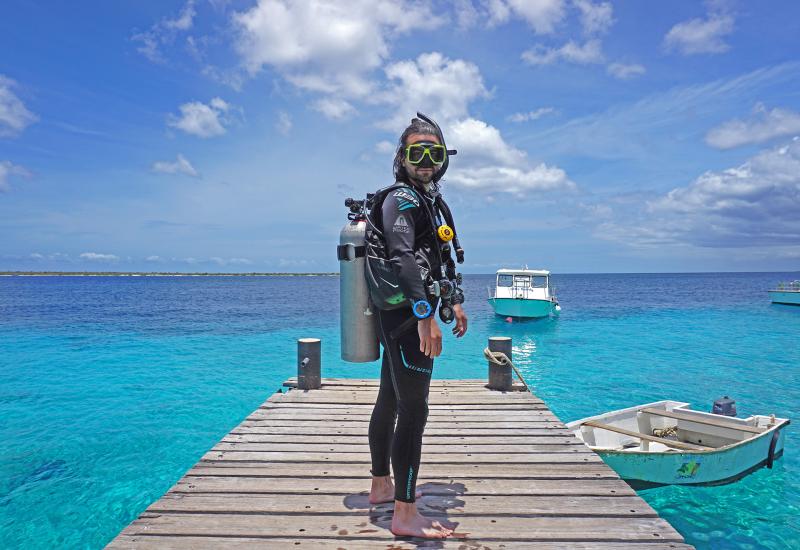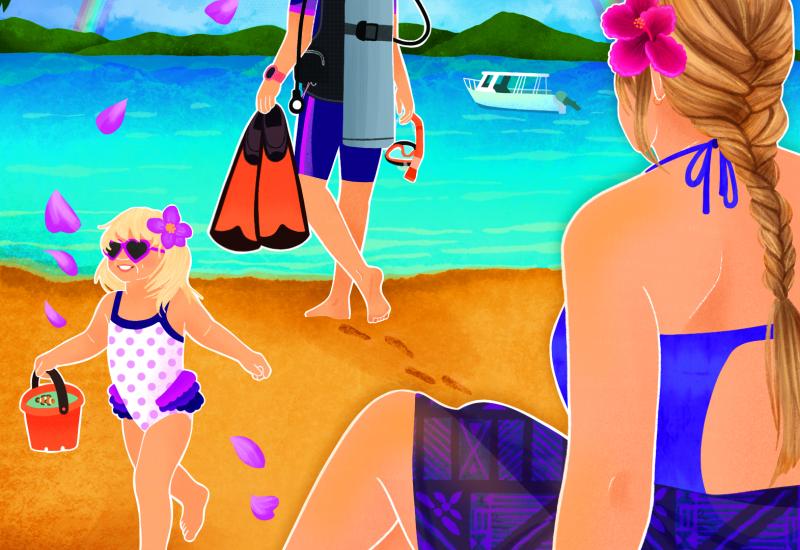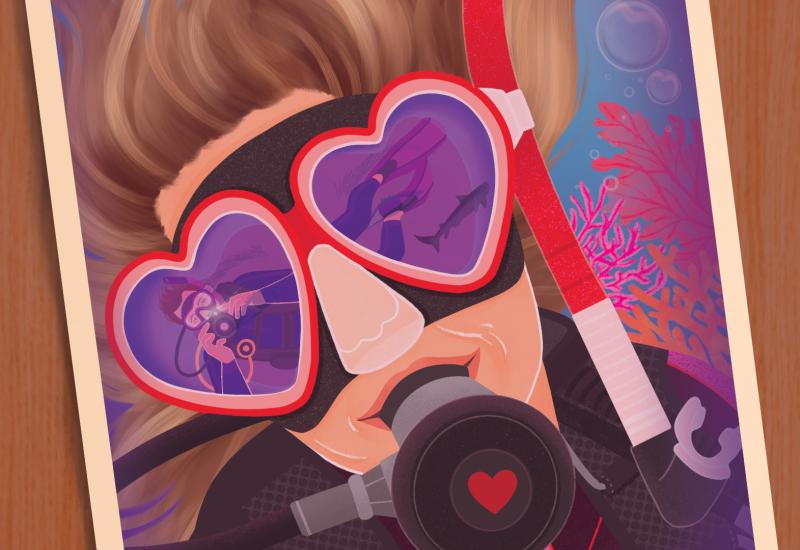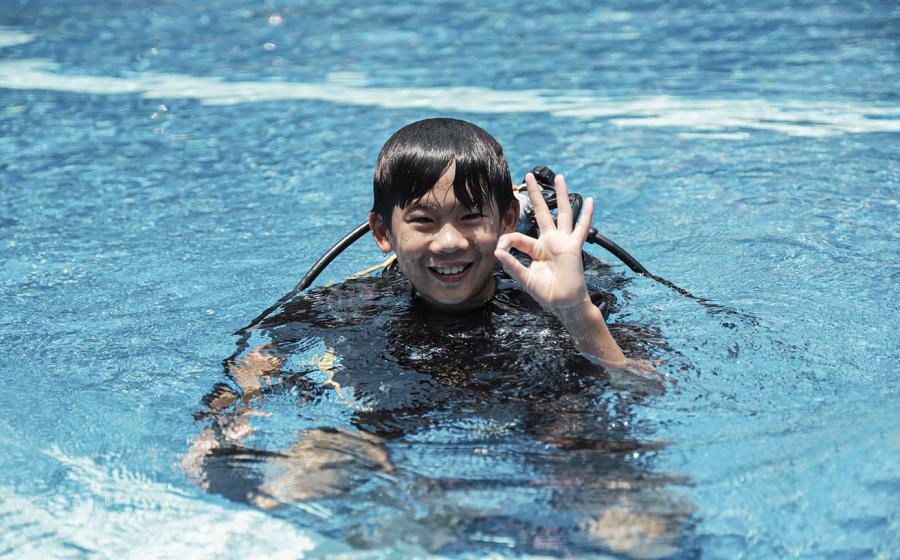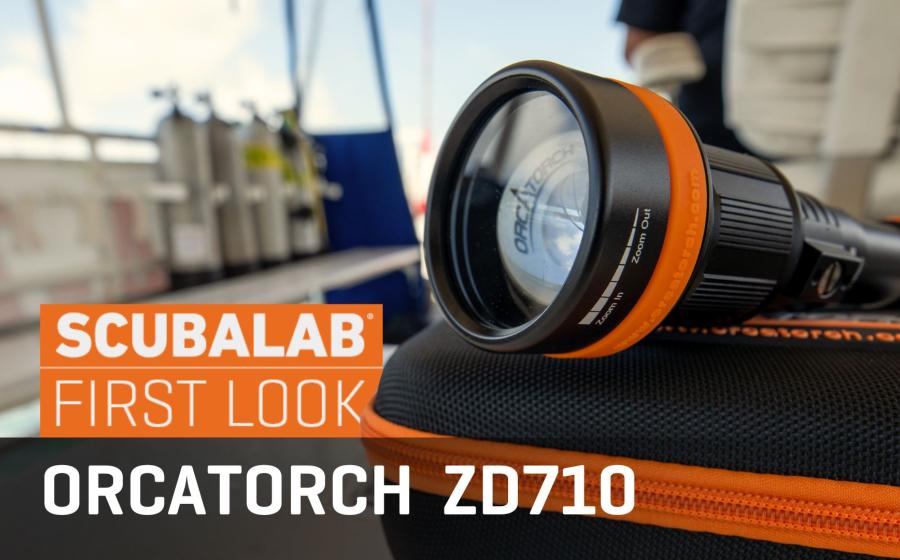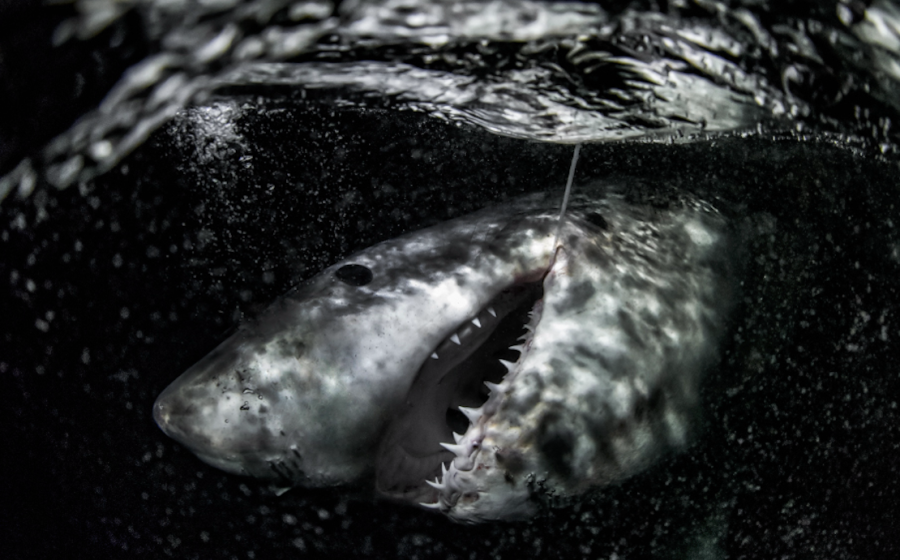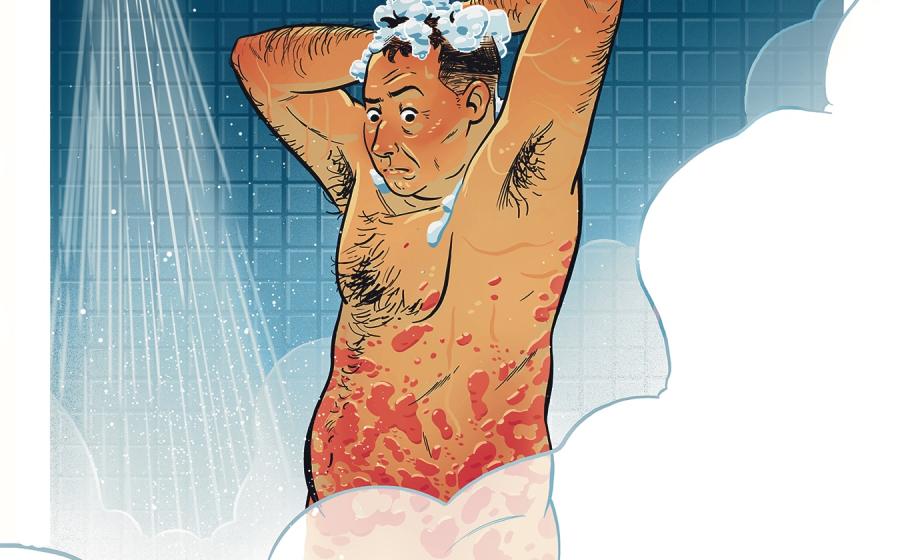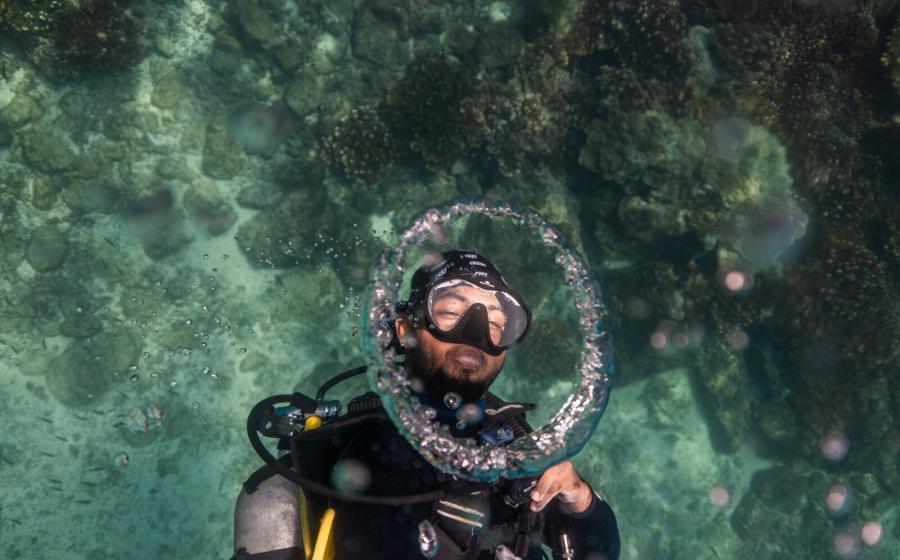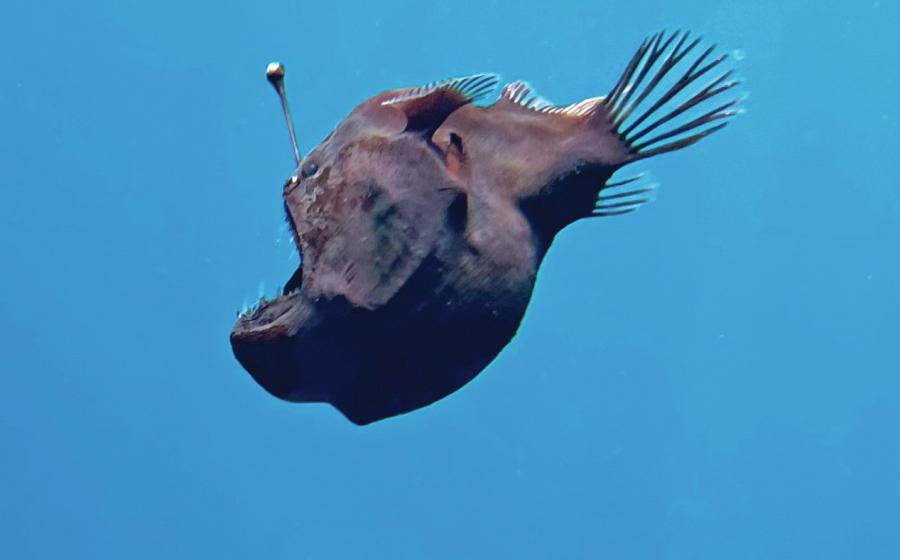The Future of Adaptive Diving Programs
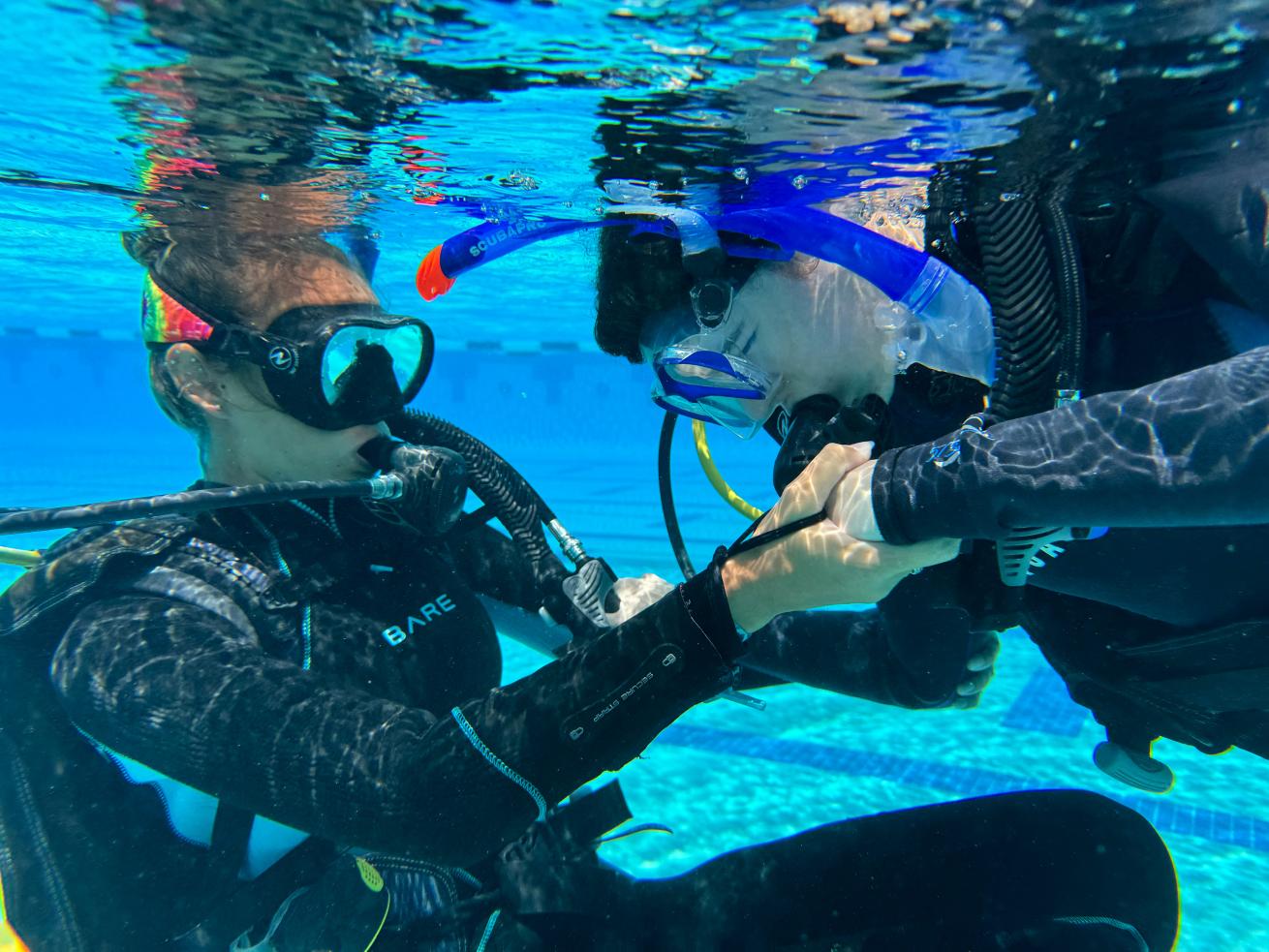
Shannon MurphyCatherine Salazar who is blind enjoying her first breathes underwater.
When you think of scuba diving, you might picture peaceful underwater landscapes, vibrant coral reefs and the thrill of exploring the unknown. For many, diving is a sport that offers adventure and escape. For others, like veterans struggling with post-traumatic stress disorder (PTSD) or students with disabilities, diving offers something far more profound: healing, connection and inclusion.
At Nova Southeastern University (NSU) in Fort Lauderdale, Florida, a unique adaptive techniques diving program has been transforming lives by making scuba diving accessible to individuals with a variety of disabilities, including autism, blindness and PTSD. The program, spearheaded by NSU’s Assistant Director for Scuba Diving Instruction in the Academic Diving Program, Bill Conrad, is a direct result of collaboration, compassion and innovation. NSU was officially recognized in April 2024 as the world’s first university to be designated a PADI Adaptive Diving Services Facility.
What is Adaptive Diving?
Globally, one in six people—an estimated 1.3 billion individuals—experience some form of disability. Adaptive diving is about using adaptive techniques to help divers with disabilities meet the same performance standards as any other diver, says Eric Albinsson, PADI instructor development and training executive. Whether it's a physical or mental challenge, or even factors like age or size, he says, everyone requires some form of technique adaptation to complete scuba training.
The key is modifying standard techniques to fit individual needs, ensuring all divers can achieve the necessary skills and certification. “There isn't really something called adaptive scuba diving. It's using adaptive techniques to go scuba diving,” he says.
Related Reading:PADI Adaptive Diving Week: Celebrating the Accessibility of the Ocean for All
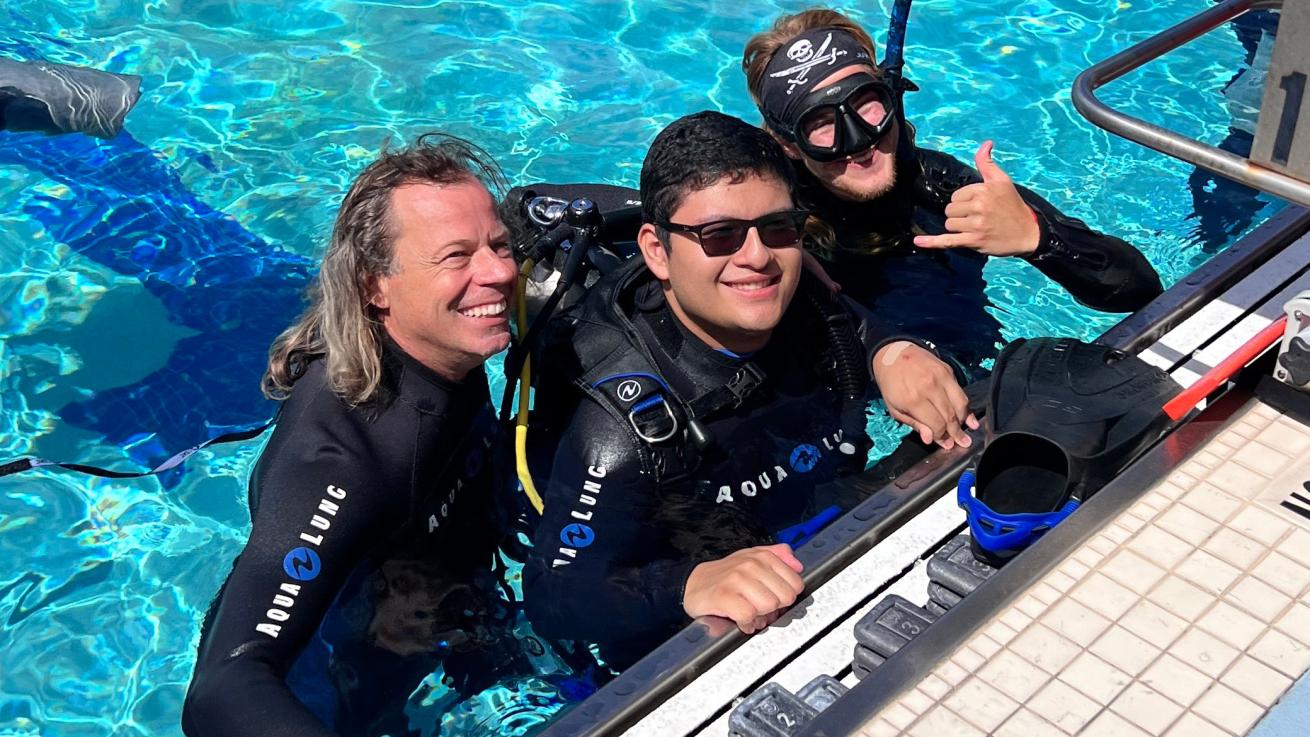
Shannon MurphyBill Conrad (left) with student Emilio Saldana.
A Personal Mission
The concept for a dive program for divers with disabilities at NSU began when Conrad met Fraser Bathgate, PADI’s global adaptive techniques coordinator, at the 2023 Diving Equipment and Marketing Association (DEMA) Show.
Bathgate, a pioneer in helping to develop adaptive diving techniques and who uses a wheelchair after a climbing accident, completed the open water diver course and advanced all the way to becoming an instructor. In fact, he was the first to qualify as a PADI instructor from a wheelchair says Albinsson.
During their conversation about adaptive diving, Conrad was struck by the strong emphasis on mental health. “What really grabbed me was how much diving focuses on mental health, something I hadn’t fully appreciated before," he shared.
Conrad’s father—who has since passed—was a Vietnam War veteran who battled PTSD throughout his life. After a discussion with his mother and other family members, Conrad decided to make a donation to launch a program for students with disabilities, honoring his father's legacy. “It’s just been an amazing journey,” says Conrad.
In partnership with the Student Disability Services Office, Conrad invited NSU students who might not otherwise have the chance to try scuba diving to attend a class and learn to dive. He reached out to Katie Tennant, case manager for Student Disability Services, who immediately knew who to invite. As a diver herself, Katie had several students who frequently commented on her diving photos, showing a clear interest in the sport.
“It’s just been an amazing journey,” says Conrad. One of his most meaningful lessons, he says, has come from the students themselves. Conrad has learned valuable strategies, such as how to ease anxiety and break tasks down into even smaller, more manageable steps—insights he now applies across all his classes.
Related Reading: What It’s Like to Be an Adaptive Diving Instructor

Shannon MurphyEmilio Saldana uses crutches to walk due to cerebral palsy. He says he loves the freedom of movement that diving provides.
Expanding the Impact: Research and Collaboration
And now, there is even more exciting work to come. Conrad has partnered with Dana Scott Mills, associate dean of research and program planning and professor at the Abraham S. Fischler College of Education at NSU to explore the qualitative impacts of scuba diving on veterans.
Mills' current research focuses on innovative therapeutic approaches for veterans transitioning back into the workforce, including using video game simulations to teach emotional self-regulation. Now, Conrad and Mills will test the effectiveness of scuba diving as a form of therapy, measuring key metrics such as heart rate and air consumption to assess its potential benefits for veterans.
“We all know scuba diving is healing, qualitatively. There’s no denying that.” Now, they hope to get the numbers to back that up, which can advance the research and the ability to secure funding.
They will also collaborate with the College of Osteopathic Medicine to gather additional quantitative data, such as collecting mouth swabs to analyze hormones and other relevant biomarkers, Conrad explains. “I’m incredibly proud of NSU and all the different divisions involved. Often, colleges can become very siloed, but this initiative has really brought together various offices to work together,” he says.
Conrad is hopeful that this work will make a real impact on veterans and their families because when a veteran suffers so do their families. “If we can help veterans with PTSD learn to self-regulate, that positive impact will pass to others".



